In response to the national "AI Plus" action plan, to explore the cutting-edge progress and future trends of digital intelligence technology and to promote the deep integration of computing technology with the economy and society, from October 22nd to 25th, The 22nd China Computer Conference (CNCC2025), hosted by the China Computer Federation (CCF) and co-organized by Harbin Engineering University and our university, was held in Harbin. With the theme of "Empowering with Intelligence, Infinite Possibilities", more than 12,000 people registered at the conference brought together top scholars, industry leaders, young students and representatives of international organizations in the field of computer science from around the world. 4.85 million people watched the live event online. The conference featured a rich array of academic activities, including 19 invited reports, 3 plenary forums, and 154 special forums. The conference covered nine topics including fundamental models of AI, machine learning theory and mechanism, data management and governance for AI, reinforcement learning and reasoning, Agents and existential intelligence, vision and multimodal, new computing and network architecture, AI security and governance, and scientific intelligence (AI4Science). Covering hot areas such as artificial intelligence, big data, and cloud computing.
Academician Sun Ninghui, President of CCF, Zhang Qixiang, Vice Governor of Heilongjiang Province, Yang Shupeng, Vice Mayor of Harbin City, Academician Chen Jie, Secretary of the Party Committee of our university, Academician Han Jiecai, President of our university, Song Yingdong, Secretary of the Party Committee of Harbin Engineering University, Liu Ting, Vice President of our university, and others attended the opening ceremony and awarding ceremony of the conference. Academicians Hu Shimin, Mei Hong, Zhao Qinping, He You, Zheng Qinghua, Li Hui, Wang Huaimin and others attended the conference. The conference invited Yannis Ioannidis, President of the Association for Computing Machinery (ACM), and Hironori, President of the Institute of Electrical and Electronics Engineers Computer Society (IEEE CS) Washizaki, Byungseok Shin, president of the Korea Institute of Information Sciences (KIISE), and Kwok Kwan Hung, vice president of the Hong Kong Computer Society (HKCS), among other strategic partners of international societies, will attend the event both online and offline. The opening ceremony was chaired by Tang Weiqing, the secretary-general of CCF.
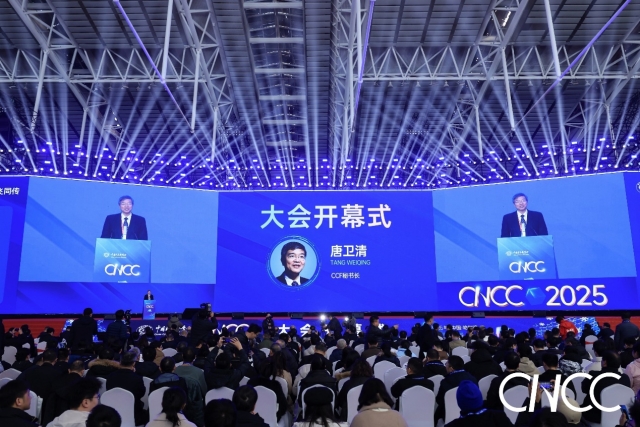
Opening ceremony Site
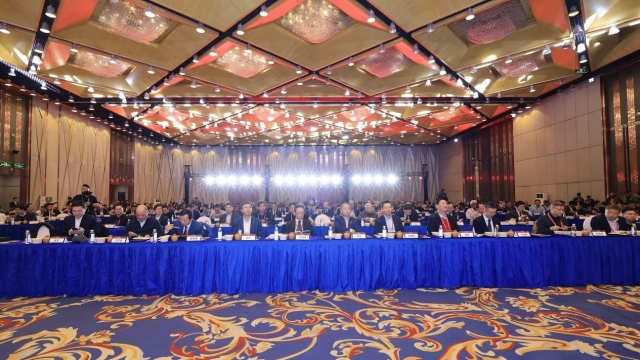
Awards Ceremony site
Sun Ninghui said in his speech that the China Computer Conference, as the flagship event of the China Computer Federation, has always been committed to building a high-level academic exchange platform. In response to the national artificial intelligence development strategy, the conference has carefully planned a rich array of activities including keynote speeches, special forums, technical discussions, and the first more than 10,000-square-meter computer exhibition, and has added special study sessions to support the growth of young scholars, striving to ensure that every participant can gain something. It is hoped that the participants will engage in in-depth exchanges, inspire ideas, and gain friendship and new knowledge at this conference.
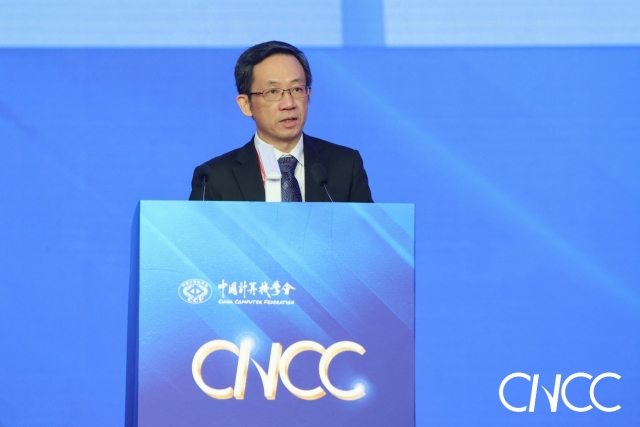
Sun Ninghui delivers a speech
In his speech, Zhang Qixiang introduced the achievements made by Heilongjiang Province in areas such as artificial intelligence and computer software, relying on universities like Harbin Institute of Technology and Harbin Engineering University. We look forward to learning more about Heilongjiang and investing in it, and working together to build Heilongjiang into a digital hub for the country's opening up to the north and a demonstration zone for the digital economy empowering the real economy.
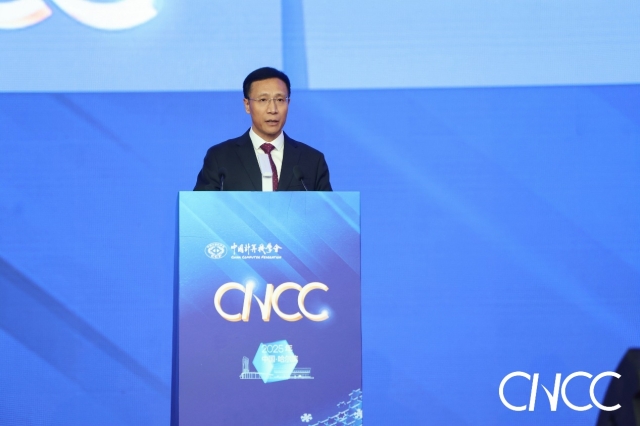
Zhang Qixiang delivers a speech
In his speech, Han Jiecai reviewed the development of the computer science discipline at Harbin Institute of Technology. The China Computer Conference is an important vehicle for promoting the deep integration of scientific and technological innovation and industrial innovation. The university will further work with all parties to deepen basic research and original innovation in the field of computer science, strengthen industry-university-research collaboration, accelerate the transformation and application of scientific and technological achievements, and contribute wisdom and strength to promoting China's computer industry to a higher level.
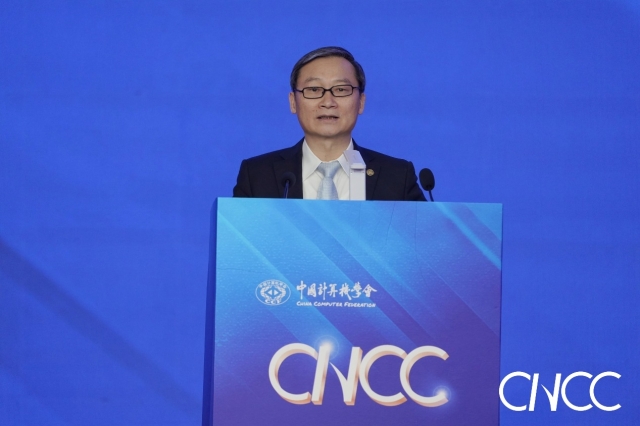
Han Jiecai delivers a speech
In his speech, Song Yingdong introduced the school's historical evolution and its "Three Seas and One Core" educational characteristics. He invited the guests to jointly explore broader space for cooperation.
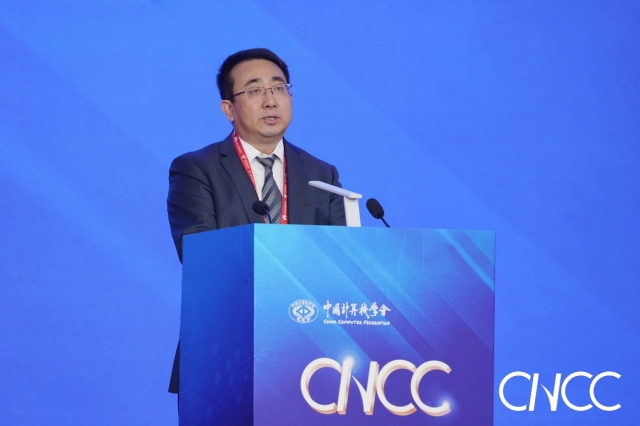
Song Yingdong addresses
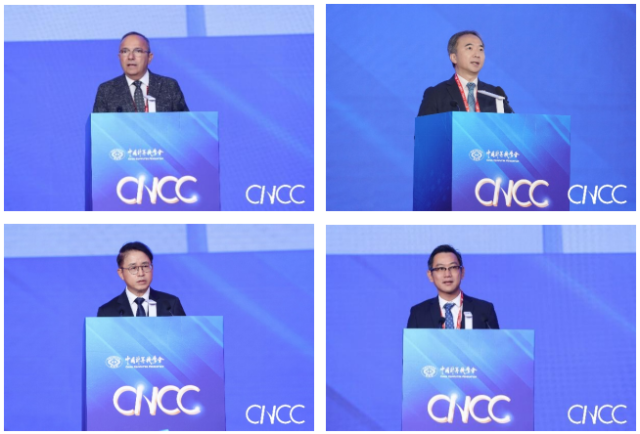
Message from international partners
At the invited report session, Professor Zhao Qinping, CCF fellow, academician of the Chinese Academy of Engineering, Beijing University of Aeronautics and Astronautics; Professor Zheng Qinghua, CCF fellow, academician of the Chinese Academy of Engineering, Tongji University; Zhou Hong, Director of the National Key Laboratory of Wireless Broadband Communication System and President of Huawei Strategic Research Institute; Jiang Feng, Group Chief Expert and assistant General Manager of Tianyi Cloud Technology Co., LTD. Li Bin, Senior Vice President of Sugon; Sumi Helal, University of Bologna, Italy; Hu Shimin, CCF fellow, Vice Chairman, academician of the Chinese Academy of Sciences and Tsinghua University; Li Hui, academician of the Chinese Academy of Sciences and Academy of Sciences for the Developing World and our university; He You, CCF fellow, academician of the Chinese Academy of Engineering and Tsinghua University;Zheng Bo, Chief Scientist and Technology President of Taotian Group, Liao Jinsong, Vice President and Director of the Research Institute of OPPO, Chandrasekaran Mohan, Hong Kong Baptist University, and Yu Kishenagawa, Head of the Information and Systems Research Institute (ROIS), University of Tokyo, CCF Fellow, Director of the Open Source Development Technical Committee, Academician of the Chinese Academy of Sciences, Professor Wang Huaimin of National University of Defense Technology, Zhang Peng, CEO of Beijing Zhipu Huazhang Technology Co., LTD., Wang Xiaochuan, CCF Council member, founder and CEO of Baichuan Intelligence, and Zhou Jun, Vice president of Ant Group's Platform Technology Business Group, gave special reports.
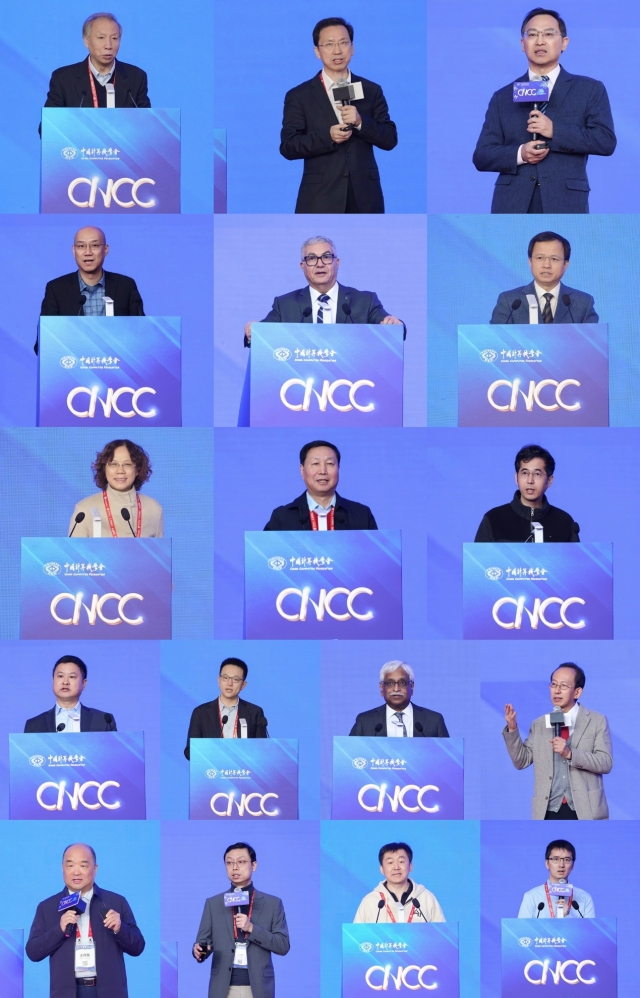
Invited Report
In the forum session of the conference, Liu Ting, the vice president of our university, attended and presided over the conference forum "Where Is the Path for the Development of Large Models?" Zhang Weinan, deputy director of the Faculty of Computing and executive dean of the School of Artificial Intelligence, attended and co-chaired the forum Embodied Intelligence, delving deeply into the challenges and feasible solutions encountered in the development of the frontier fields of computing.
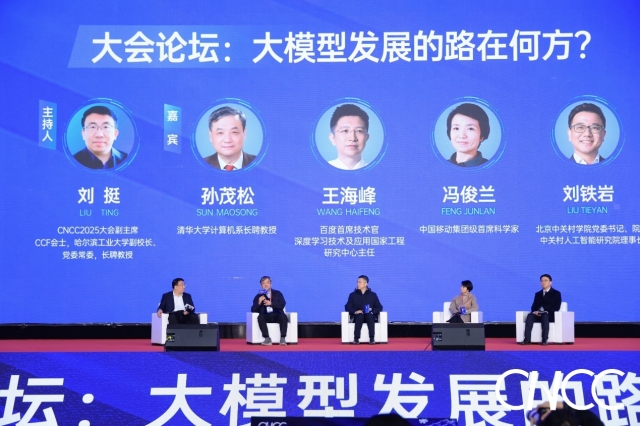
Liu Ting hosted the conference forum "Where Is the Road for the Development of Large Models?"
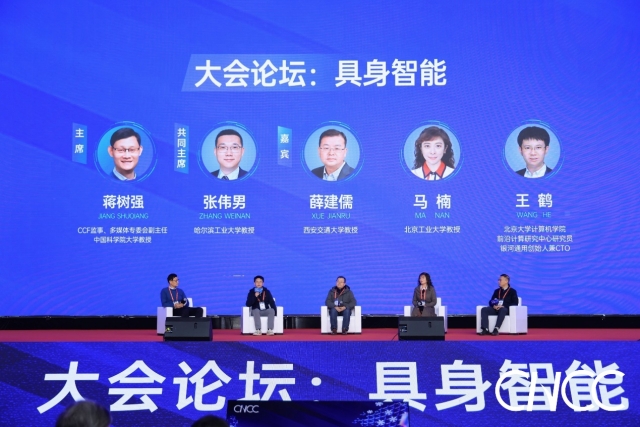
Zhang Weinan co-host the conference forum Embodied Intelligence
This year's CNCC Awards ceremony, hosted exclusively by Harbin Institute of Technology, was held on the evening of October 24th. The CCF Wang Xuan Award, CCF Overseas Science and Technology Figure Award, CCF Young Scientist Award and CCF Science and Technology Achievement Award were presented at the ceremony. The team of Professor Qin Bing from the Faculty of Computing won the first prize for Scientific and Technological Progress of CCF.
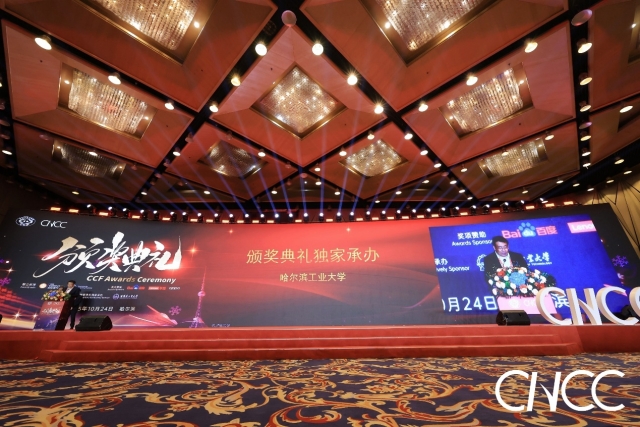
Awards Ceremony Site
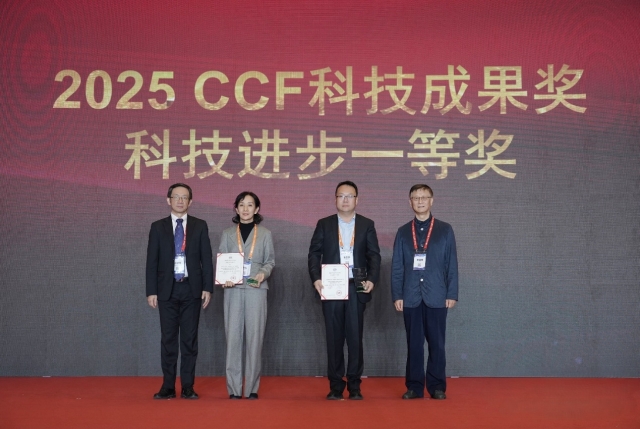
Professor Qin Bing's team wins
The first CCF Computer Exhibition (CCE) was held concurrently during the conference. The exhibition features 20 special booths and 81 regular booths, bringing together top technology companies, universities and innovative teams to showcase cutting-edge technological achievements. Our booth provided a detailed account of the development and educational achievements of four computer-related disciplines: computer science and technology, artificial intelligence, software engineering, and cyberspace security, attracting many visitors to stop by.
Zhang Qixiang came to our booth to learn about the school 's scientific and technological innovation achievements and industrialization, and affirmed the school' s scientific and technological innovation, transformation of achievements and contributions to the local economic and social development.
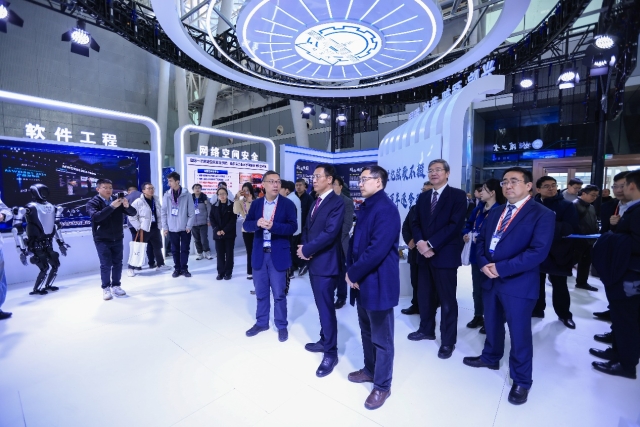
Zhang Qixiang viewed the exhibition
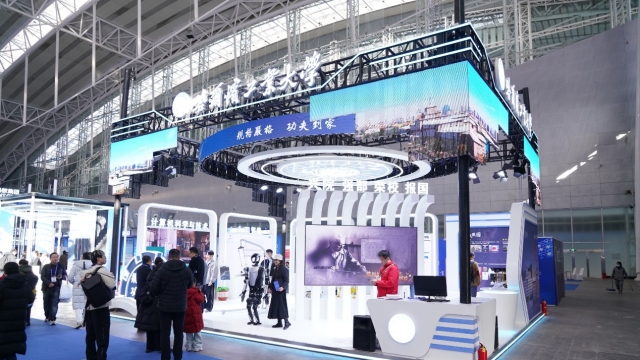
Harbin Institute of Technology booth
During the conference, the School of Cyberspace Security of our university, in collaboration with Shanghai Jiao Tong University and other universities, research institutes and enterprises, released the achievements "Large Model Generated Content Security and Evaluation (2025)" and "Agent Development and Security (2025)". At the same time, Professor Liu Jie's team from the Ubiquitous Computing and Intelligent Systems Research Center of the School of Computer Science and Technology also released the 2.0 version of the "Tiangong Kaiwu" agricultural model, which is the first large model in China to be approved and filed with the Cyberspace Administration of China.
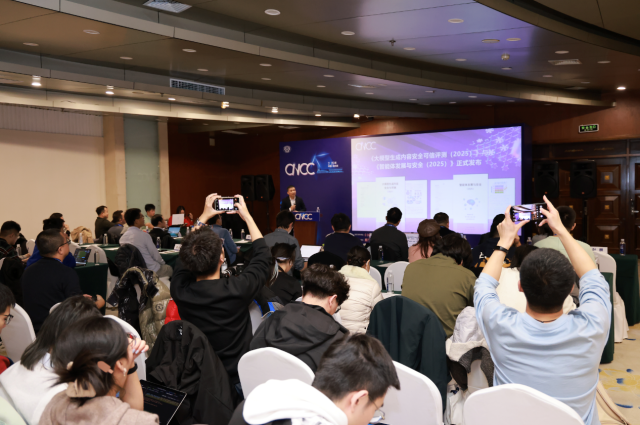
"Big Model-generated Content Security and Evaluation (2025)" and "Agent Development and Security (2025)" were released
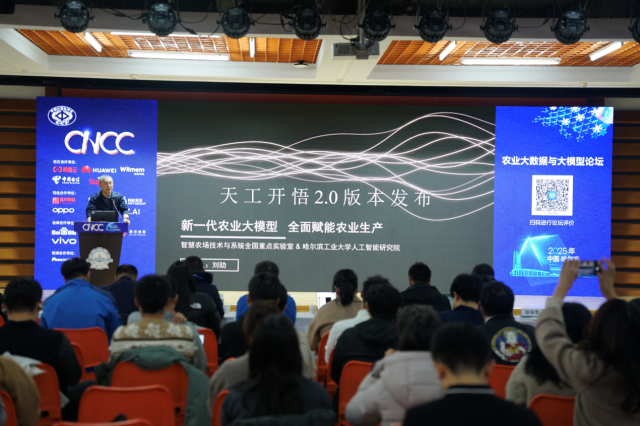
The Tiangong Kaiwu agricultural large model 2.0 has been officially released
This year's conference was unprecedented in scale, with a total of 154 special forums held, including more than 40 sub-forums held at our university. Our school took the lead in organizing 15 forums and 3 workshops. Many speakers shared on the frontiers of computer science. The atmosphere at the forums was lively and the interaction was frequent. The guests engaged in in-depth discussions on related topics, bringing academic feasts to the participants.
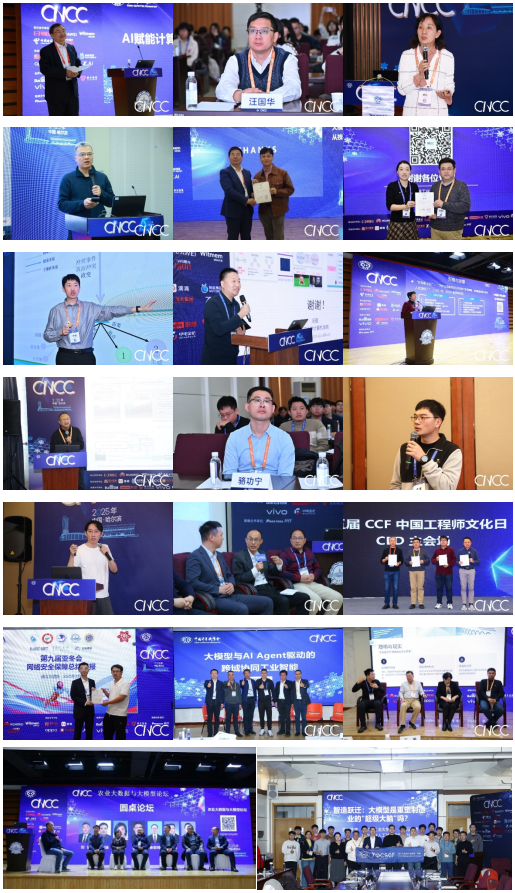
At the sub-forums
At the "Zhi Cun Night" event held on the evening of October 25th, the faculty and staff team of the School of Computing took the stage to sing the "Song of Harbin Institute of Technology" and the "Song of Computing", fully demonstrating the positive and energetic spirit of the faculty and staff as well as their mission and responsibility of "developing the college, strengthening the department, bringing honor to the university, and serving the country".
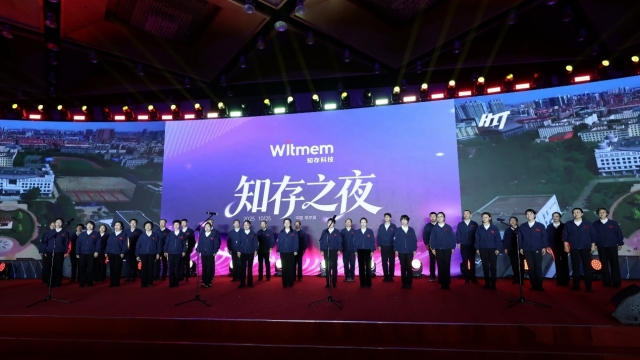
Faculty members sang "Song of HIT" and "Song of Computing"
Harbin Institute of Technology provided full support for the smooth running of the conference. Faculty members and students were deeply involved throughout the conference. The Computing faculty sent a total of more than 80 young teachers and more than 100 student volunteers to ensure the smooth running of the conference.
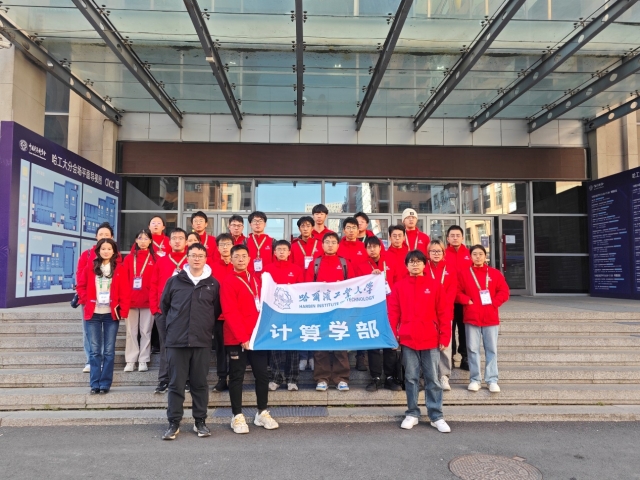
Volunteers from the School of Computing contributed to the smooth running of the conference
As one of the earliest computer programs established in China, the computer science program at Harbin Institute of Technology has cultivated a large number of outstanding talents and achieved a series of major scientific research results in nearly 70 years of development, striving to build a leading domestic and world-class computing discipline group. Taking this conference as an opportunity, the School of Computing at Harbin Institute of Technology will further gather the world's top wisdom in the field of computer science, deepen strategic cooperation with leading enterprises and research institutions in the industry, accelerate the construction of a full-chain innovation ecosystem of "basic research - technological breakthrough - industrial application", and strive to create a new model of innovative development of computer science with Harbin Institute of Technology characteristics, To inject strong impetus into China's construction of a science and technology power and the high-quality development of the digital economy.
Some of the content of this article is from the website of Harbin Institute of Technology and the official Weibo account of the China Computer Federation



